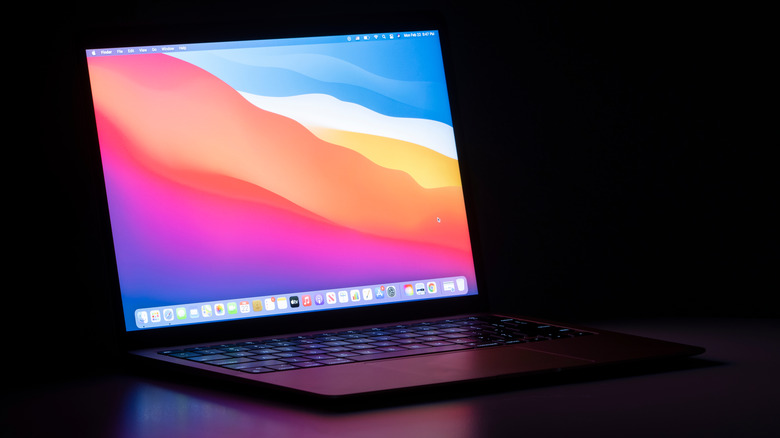The Big Myth About Mac Computers You Need To Stop Believing
It's common to hear that you can't get a virus on a Mac computer. While Apple has gone to great lengths to ensure that Macs are extremely secure and protected from malware, any computer is susceptible to security vulnerabilities and attacks. There are always new computer viruses and malware being created, and this means it's possible they could get around safety measures at times. The misconception that Mac computers don't get viruses has led many to overlook antivirus software for their machines entirely.
Although Apple does have sophisticated security measures, it doesn't always mean its computers are protected. Such was the case in 2012 when around 600,000 Mac computers were infected with a trojan virus, as reported by The Washington Post. This was due to an oversight in the Java software that was available for Apple computers at the time, which resulted in a vulnerability that left the Macs open to the attack. This incident took many aback who had previously believed Macs were immune to viruses, a sentiment largely caused by marketing from Apple itself.
What can cause a Mac to get a virus?
The trojan virus that attacked Mac computers in 2012 was possible because Apple was late to patch vulnerabilities in its Java software. This kept the door open far too long for malicious activity to take place. After the attack, Apple changed its marketing on its website, editing a phrase that read "It doesn't get PC viruses" to "It's built to be safe," as Wired reported at the time. The myth that Macs don't get viruses at all remains in some circles, however.
So how does a virus like this happen? There are many ways; in fact, a virus can infect a computer no matter the operating system. Downloading software or clicking on links are two common ways viruses can be acquired. Usually, computers have antivirus software that stops viruses before they cause any real problems, but if there are weak spots in these programs, it's possible they could still get through. Because of this, it's still always a good idea to stick to safe browsing and downloading practices, no matter how secure your computer seems.
How to protect your Mac from viruses
If you have a Mac of your own and have been under the impression they can't get viruses, the best thing to do is reframe that thought and know Macs can be as susceptible as any other computer. With that in mind, you'll want to browse the internet safely, as well as only download software from sources you trust. Clicking on fishy-sounding links can also be a potential gateway to a virus. E-mail is one place you'll typically find links like these, usually popping up in your Spam or Junk folder. A good rule of thumb is that if the message is from someone you don't know and sounds too good to be true, don't click on it.
As far as downloading software goes, make sure you're getting it from a reputable source, namely Apple's Mac App Store. If you're seeing lots of ads and are unsure of where to click to download something while using a site, it's a good indicator that you may potentially download a virus. Be careful when entering information as well, and do so only on sites where you can see an HTTPS certificate (usually denoted as a lock) in the URL field. These are all practices that should be done on any computer, and Macs are certainly included.


